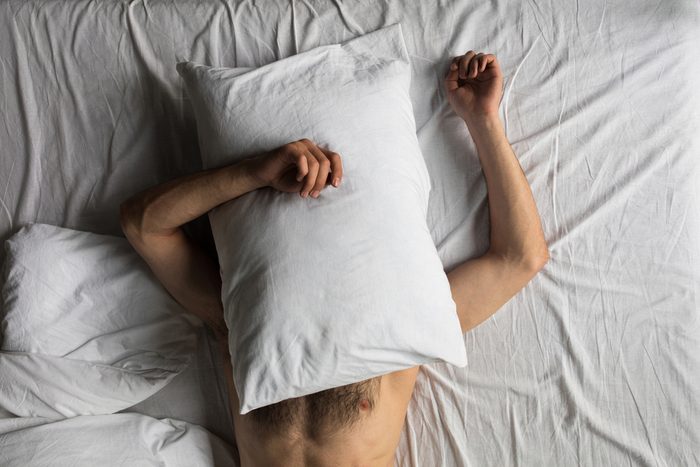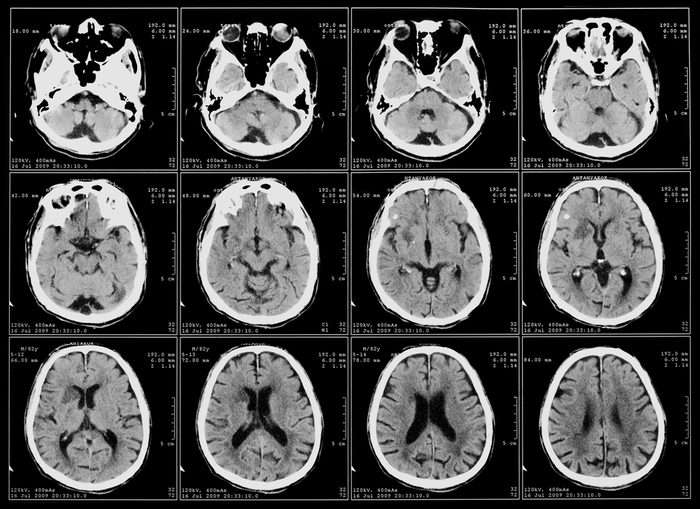
Chemicals and your brain
One of the last things you’re thinking about during sex is probably chemicals and your brain—but they’re more involved than you think. Studies and MRIs suggest there are many remote areas of the brain that are active before, during, and after orgasm. Still, research on this topic is always developing as it’s a challenging topic to measure, test, and study. Here’s what researchers know so far about what happens to your brain during sex.

Certain parts of the brain warm up
The limbic system—a more primitive region of the brain responsible for physical drives and elements of emotional processing—activates during sex, according to Jason Krellman, PhD, a neuropsychologist and assistant professor of neuropsychology at Columbia University Medical Center. Other parts of the cerebral cortex that govern higher reasoning, however, shut down. “As a consequence, the sexual act itself is driven more by instinct and emotion than rational thought,” Krellman says.

Other parts of the brain cool down
Interestingly, two specific areas of the brain seem to shut off during sex for women, according to Jennifer Sweeton, PhD, a clinical psychologist in the greater Kansas City area. One region involves social judgments and awareness, which might be why people say, “love is blind,” Sweeton says. The areas linked to self-awareness and self-inhibition also have been found to deactivate in female brains, resulting in out-of-body-like experiences during sex. This “neural disinhibition” helps women orgasm, says Nicole Prause, PhD.

Your brain releases dopamine
Sex causes the brain to release much higher levels of some neurochemicals, according to Krellman. These chemical changes help regulate and pace sexual activities, says Prause. One of these neurotransmitters is dopamine, which promotes feelings of desire, euphoria, satisfaction, and reward, Krellman says. Dopamine, a key part of the brain’s reward system, releases in the same part of the brain that activates when people consume certain foods or drugs, according to Mimi Shagaga, PsyD, a licensed clinical psychologist specializing in neuropsychology. This part of the brain, the hypothalamus, also regulates hunger, thirst, and emotional responses, as well as things like body temperature. Dopamine increase is part of the reason why sex might be better in hotels.

Your brain releases oxytocin
Oxytocin is a hormone that acts as a neurotransmitter in the brain, which increases with sexual arousal and orgasm. One misconception, however, is that oxytocin encourages bonding between partners post-orgasm. Prause says there’s no evidence of this in humans. In fact, there’s only some speculative research that women might be more emotionally connected after orgasm thanks to oxytocin and vasopressin (more on that later.) There’s no current method to measure oxytocin in the brain either. So we don’t know if it actually changes the brain, Prause says. What researchers do know is that oxytocin released during sex could have pain-relieving effects, according to Krellman. This could be a reason that sexual pleasure and pain are often linked.

Your brain releases vasopressin
Although some research suggests changes in vasopressin post-orgasm might make women experience sexual activity as more of an emotional connection, vasopressin changes are more significant in men, according to Prause. “Given that vasopressin promotes sleepiness, this may reflect the gender differences—sometimes the butt of jokes—as men rolling over and snoozing immediately after sex,” she says. “There may be a biological basis for that.”

Your brain releases serotonin
Serotonin helps regulate mood and sleep, so when people don’t get enough they might feel depressed, Sweeton says. Since serotonin increases during sex, it can lead to feelings of happiness and peace post-romp. Research shows, under healthy conditions, that sex can boost your mood, reduce stress, and perhaps as a consequence, improve memory, Kellman adds. (If you also want to reap as many benefits from sex as possible, plan for sex at this exact time in the morning.)

Your brain releases norepinephrine
Norepinephrine increases arousal, attention, and energy by activating the sympathetic nervous system in the brain, says Clifford Segil, DO, a neurologist in Santa Monica, California. “The norepinephrine releases to increase our heartbeat and rouse us,” he says. Many stereotypes of being in love or lust, like a loss of appetite, excess energy, and trouble sleeping, are associated with high concentrations of norepinephrine, too.

Some of these changes might make people sad after sex
After orgasm, the brain releases the neurochemical prolactin and drops dopamine. This change post-sex might explain why some people have post-coital dysphoria, or feelings of sadness after sex that are distinct from feelings of regret or loneliness, Krellman says. (Don’t ignore this, or any of these 13 other sex problems.)

All of these chemical brain changes have a purpose
Not only do chemical changes in the brain make the experience more pleasurable, but they also have evolutionary value, according to Krellman. “Sex is vital to our survival as a species. So it makes sense that the act would be rewarding, pleasurable, and make us less vulnerable to physical discomfort that might interrupt the act,” he says.
Next up: Need a libido boost? Here are 31 natural ways to send it into overdrive.
